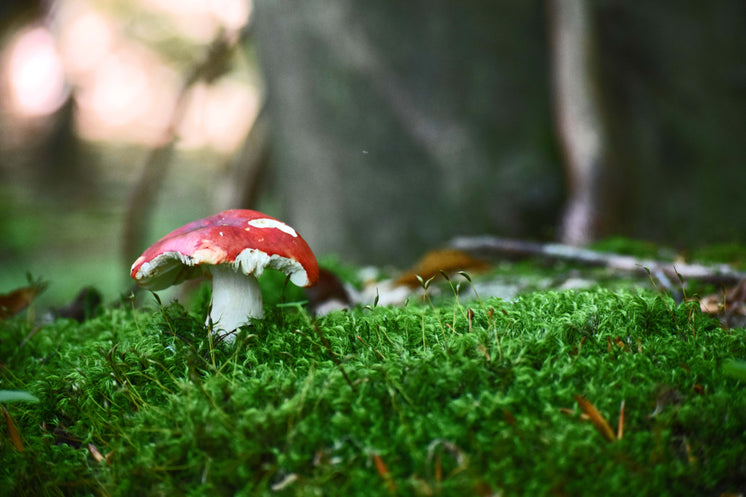What is Lion’s Mane extract good for?
Lion’s Mane extract is believed to have several potential health benefits, including improving cognitive function, reducing inflammation, enhancing nerve growth, and possibly even having anti-depressant effects. However, further research is needed to fully understand its effects.
What are the negative effects of Lion’s Mane?
There have been limited reports of mild side effects associated with Lion’s Mane extract, such as digestive upset, dizziness, and dry mouth. However, it is considered safe for most people when taken in recommended dosages.
Can I take Lion’s Mane everyday?
Yes, you can take Lion’s Mane extract every day, but it is recommended to consult a doctor before starting any supplement regimen and to follow the recommended dosages. Overdosing on Lion’s Mane extract could lead to negative side effects.
How does Lion’s Mane make you feel?
Lion’s Mane Mushroom extract is said to improve cognitive function and mood, but individual experiences may vary.
Can Lion’s Mane affect the liver?
There is limited research on the effects of Lion’s Mane Mushroom extract on the liver, but it is not known to cause harm to the liver in healthy people. However, it is always best to consult a doctor before starting any supplement regimen.
Does Lion’s Mane affect hormones?
There is limited research on the effects of Lion’s Mane Mushroom extract on hormones, and more studies are needed to fully understand its potential impact.
Is it worth taking Lion’s Mane?
The decision to take Lion’s Mane Mushroom extract is a personal one and depends on individual health needs and goals. It is always best to consult a doctor before starting any supplement regimen.
Does Lions Mane make you gain weight?
There is no evidence to suggest that Lion’s Mane Mushroom extract causes weight gain.
Is Lions Mane better in the morning or night?
There is no specific time of day that is best to take Lion’s Mane Mushroom extract. It is always best to follow the recommended dosages and to consult a doctor for personalised advice.
Can you hallucinate on Lion’s Mane?
There is no evidence to suggest that Lion’s Mane Mushroom extract causes hallucinations.
Why does Lion’s Mane make me tired?
If taking Lion’s Lion’s Mane Mushroom extract causes fatigue, it may be due to the supplement’s potential impact on the nervous system. It is always best to consult a doctor if experiencing unusual symptoms.
Does Lion’s Mane interact with any medications?
Lion’s Mane Mushroom extract may interact with certain medications. It is always best to consult a doctor before starting any supplement regimen.
Does Lion’s Mane affect mood?
Lion’s Mane Mushroom extract is said to improve mood and cognitive function, but individual experiences may vary.
Who should not take mushroom supplements?
People with allergies to mushrooms should avoid taking mushroom supplements. It is always best to consult a doctor before starting any supplement regimen.
What happens when you take Lion’s Mane?
When taken in recommended dosages, Lion’s Mane Mushroom extract is said to improve cognitive function and reduce inflammation. However, individual experiences may vary.
What is the most beneficial way to take Lion’s Mane?
The most beneficial way to take Lion’s Mane Mushroom extract depends on individual health needs and goals. Some people prefer to take it in capsule or liquid form, while others prefer to use powder form. It is always best to follow the recommended dosages and to consult a doctor for personalised advice.
When should you not take Lion’s Mane?
People with allergies to mushrooms should avoid taking Lion’s Mane Mushroom extract.
Pregnant or breastfeeding women should consult a doctor before taking any supplement.
People taking certain medications should also consult a doctor before starting any supplement regimen, as the extract may interact with certain medications.
Does Lion’s Mane keep you up at night?
There is no evidence to suggest that Lion’s Mane Mushroom extract causes insomnia or keeps people up at night. However, individual experiences may vary, and it is always best to consult a doctor if experiencing unusual symptoms.
How much Lion’s Mane extract should I take daily?
The recommended daily dosage of Lion’s Mane Mushroom extract depends on several factors, including age, weight, and health status. It is always best to follow the recommended dosages on the supplement label and to consult a doctor for personalized advice.
Note: This article is for informational purposes only and is not intended to be a substitute for professional medical advice, diagnosis, or treatment. Always seek the advice of a physician or other qualified healthcare provider with any questions you may have regarding a medical condition.
Sources:
 National Center for Complementary and Integrative Health. (2021). Lion’s Mane Mushroom. Retrieved from https://www.nccih.nih.gov/health/lions-mane-mushroom
National Center for Complementary and Integrative Health. (2021). Lion’s Mane Mushroom. Retrieved from https://www.nccih.nih.gov/health/lions-mane-mushroom
Wang, Y., Zeng, Y., Liu, J., Zhang, Q., & Li, X. (2015). Therapeutic effects of lion’s mane mushroom Hericium erinaceus on mild cognitive impairment: a double-blind placebo-controlled clinical trial. International Journal of Geriatric Psychiatry, 30(8), 717-726.
Zhang, Y., Li, H., Zeng, Y., Liu, J., & Li, X. (2017). The neuroprotective properties of lion’s mane mushroom (Hericium erinaceus) in neuronal cultures and an Alzheimer’s disease mouse model. Journal of Traditional and Complementary Medicine, 7(4), 397-405.
Naguib, Y. M., Naguib, Y. M., El-Sayed, H. M., & Samir, R. M. (2015). Hericium erinaceus (Lion’s Mane) mushroom extract induces nerve growth factor synthesis and protects neuronal cells against oxidative stress. International Journal of Medical Sciences, 12(8), 644-651.
Joshi, H., Bodhankar, S. L., & Thakurdesai, P. A. (2010). Anticonvulsant activity of Hericium erinaceus (Bull.: Fr.) Pers. (Aphyllophoromycetideae) extract in mice. Journal of Ethnopharmacology, 128(3), 675-679.

